|
If you would like to obtain one of these handcrafts
to wear,
to use,
or to give as a gift,
and also to help the efforts of the Waorani
to protect their Amazon forest, contact
Save America's Forests - 202-544-9219
|
| |
ALL PHOTOS OF THE WAORANI HANDICRAFT WORKSHOP ON THIS PAGE ARE COURTESY OF SUSAN KING AND THE WAORANI, AND MAY NOT BE USED WITHOUT PERMISSION
|
|
| |
Asociación de Mujeres Waorani de la Amazonia Ecuatoriana
Waorani Women´s Association Handicraft Workshop
REPORT
By Susan King, Peace Corp Volunteer
With the generous support of IBIS, Entrix and Save America’s Forests, the Waorani Women´s Association (AMWAE) , organized a successful three day handicraft workshop in the Waorani village of Ñoneno held October 12-14, 2007.

Manuela Ima, chairman AMWAE, Waorani women's organization,
at right, leading the workshop
|
 |
| |
More than 50 Waorani women from 15 different communities attended the handicraft workshop, including several women from the communities of Bameno, Ñoneno and Boanamo, which are located in the Zona Intangible. For some of these women, it was the first time they participated in a workshop. The women expressed their gratitude for the opportunity to participate and remarked that they felt important to be invited to such an important event. Several participants said they were proud to honor their traditions and to conserve an important part of their culture.
|
 |
| |
The Ñoneno workshop focused on improving the quality of traditional handicrafts and to provide training in the creation of modern designs such as cell phone carriers, earrings and belts using sustainably harvested materials (palm string, seeds) from the forest. The instructors included Manuela Ima and Tiyane Ima, officers of the Waorani Women’s Association as well as AMWAE accountant Noemi Ulcuango, and Peace Corps Volunteer Susan King, all who have extensive experience in making various types of jewelry and handicrafts. 
|
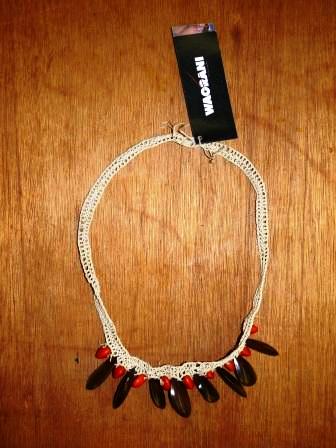 |
| |
"It was a very nice experience," said Manuela Ima, chairman AMWAE. "Women are taught in their own language for women to learn faster and more easy."
.
|
 |
| |
Waorani women of all ages participated in the workshop and some learned to make traditional handicrafts for the first time, such as wooden combs and woven armbands worn in dances and festivals. The workshop allowed the women to share experiences, learn ancient weaving techniques, as well as participate in a traditional dance and other activities unique to the Waorani culture.

|
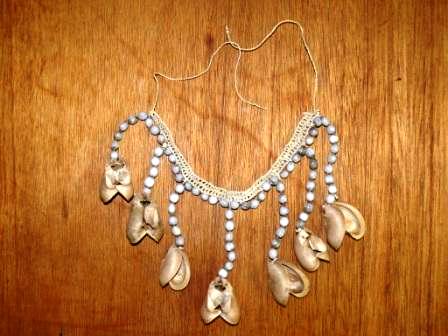 |
| |
At the end of the workshop, the Waorani Women’s Association bought handicrafts directly from the women at fair prices. The sale of traditional handicrafts provides critical alternative resources to Waorani women and families in a region that faces increasing pressure from extractive industries including logging and oil exploration. The Waorani Women´s Association sells the authentic handicrafts in the Waorani Women´s Association´s store in Puyo and the certified Fair Trade gift shop at the Mindalae Museum in Quito in partnership with Sinchi Sacha.

|
|
| |
In addition to sponsoring the workshop, Save America’s Forests has begun purchasing the Waorani Women’s authentic handicrafts for distribution in the United States.
|
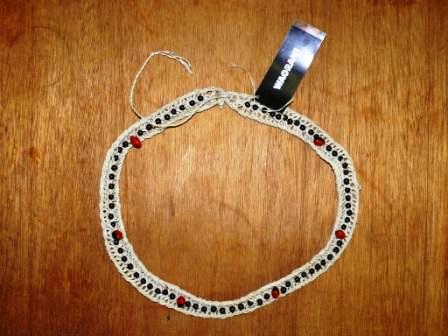 |
|
|
| |
|
|
| |

|
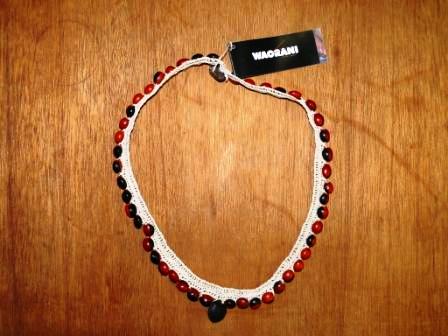 |
| |

|
|
| |

Manuela Ima In The Red Shirt
|
|
| |

|
|
| |

Tired After a Long Day At the Workshop

Susan's Friend Wilma
|
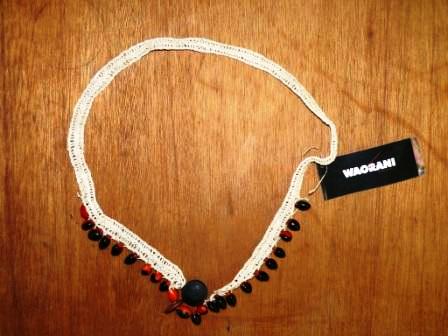
|
| |

|
|
| |
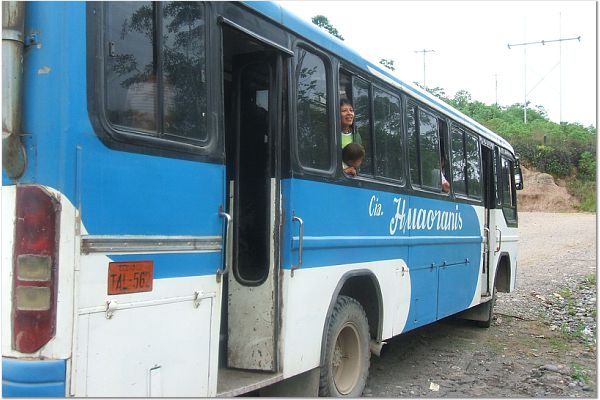
The Waorani Women traveled to the handicraft workshop from villages all over Yasuni, which is larger than Connecticut. They traveled by road and by the river in canoes. Here is a bus some of them used with the old spelling of Huaorani on it.
|
|
| |
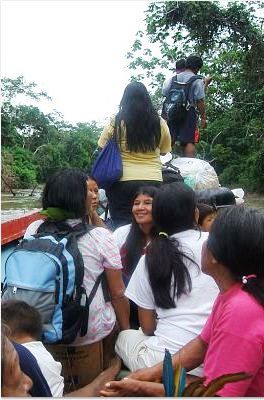
Waorani Women Ride in Canoe to Get to the Workshop At Ñoneno
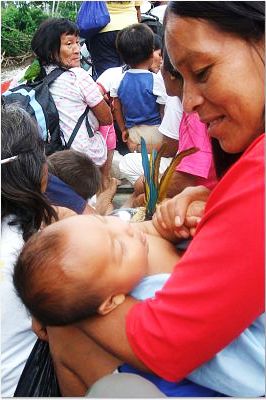
Obe With Her Baby On The Canoe
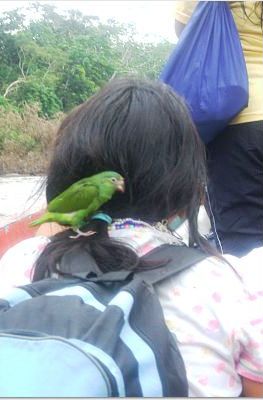
Pet Parakeet Along For the Canoe Ride
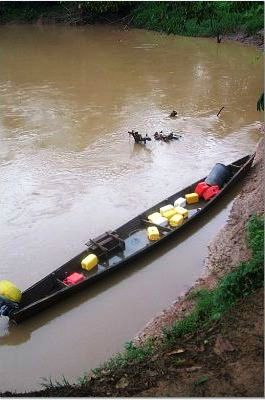
Giant Canoe the Women Rode In - It Can Carry More Than 15 People
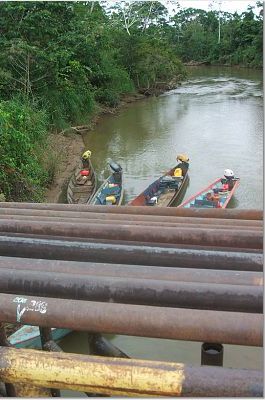
Oil Pipelines Cross the Bridge Over the River - Four Canoes Below
|
|
| |
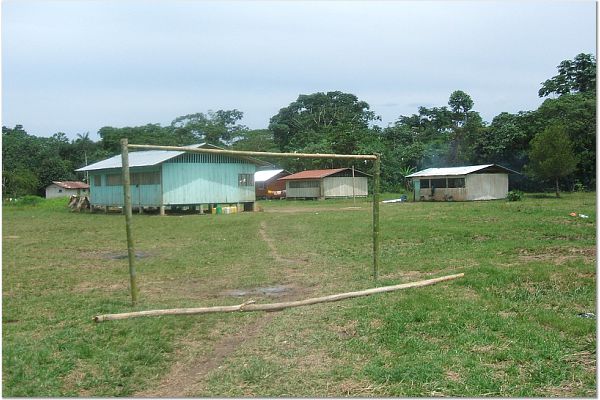
Center or the Waorani Village of Ñoneno
|
|
| |
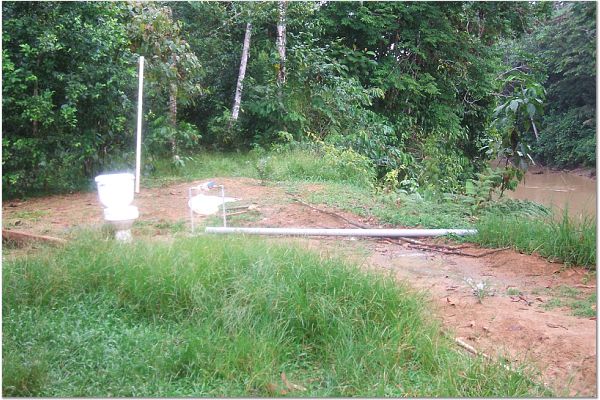
Newly Installed Toilet at Ñoneno
|
|
| |
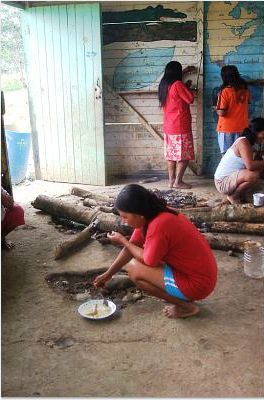
Fire Pit Where Food Is Cooked For the Day's Meal

Lunch Time
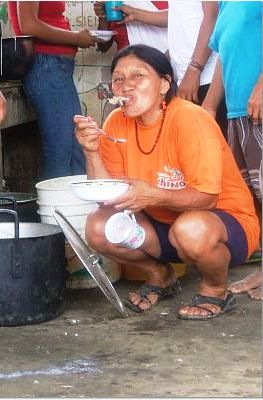
Dayo Is Happy Eating Chicken Soup
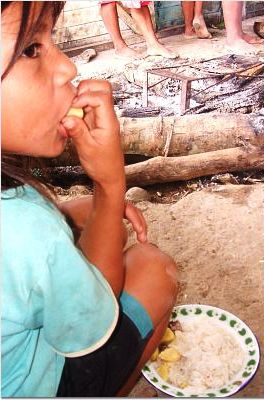
Wilma Eating A Plate of Rice
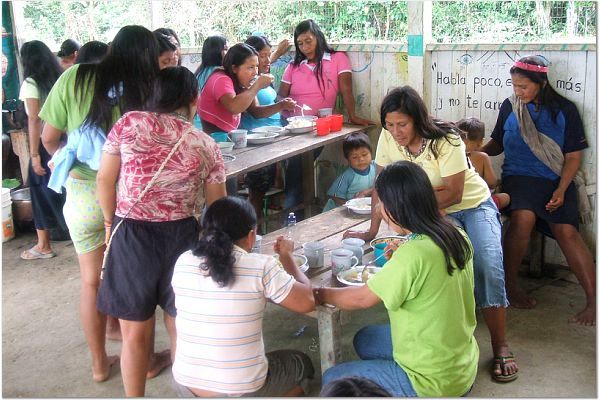
Everyone Eats
|
|
| |
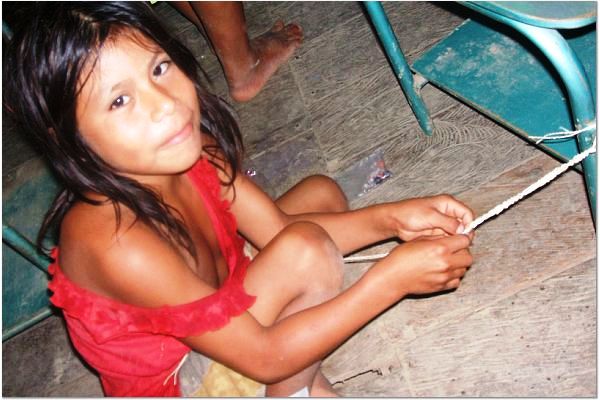
Susan's Friend Wilma Weaving
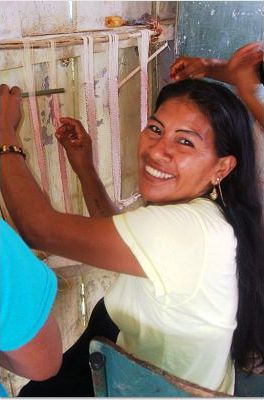
Mariana Weaving
|
|
| |
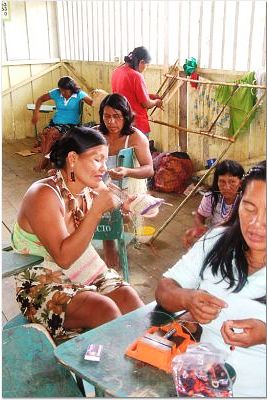
Weaving and Sewing
|
|
| |
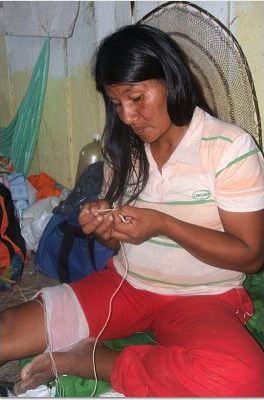
Sarita at work
|
|
| |
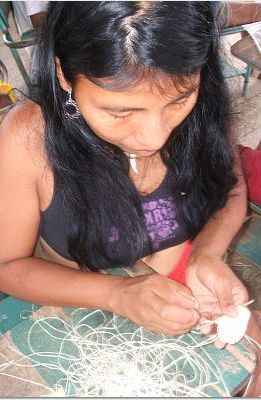
Tiyane Weaving
|
|
| |
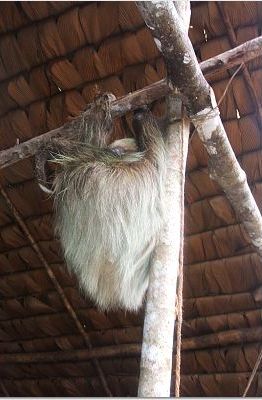
Pet Sloth Cradling Her Baby
|
|
| |
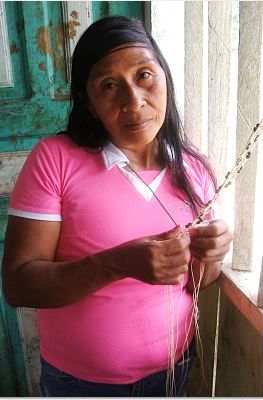
Yewe Making A Belt
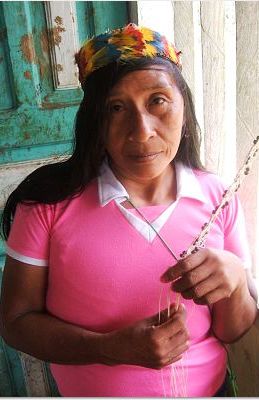
Yewe Wearing a Crown of Feathers
|
|
| |
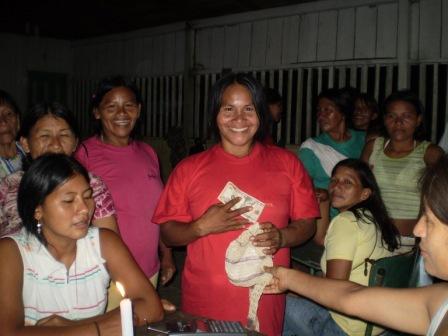
Happy At Receiving Fair Payment For Their Handicrafts |
|
| |
|
|
| |
|
|



































